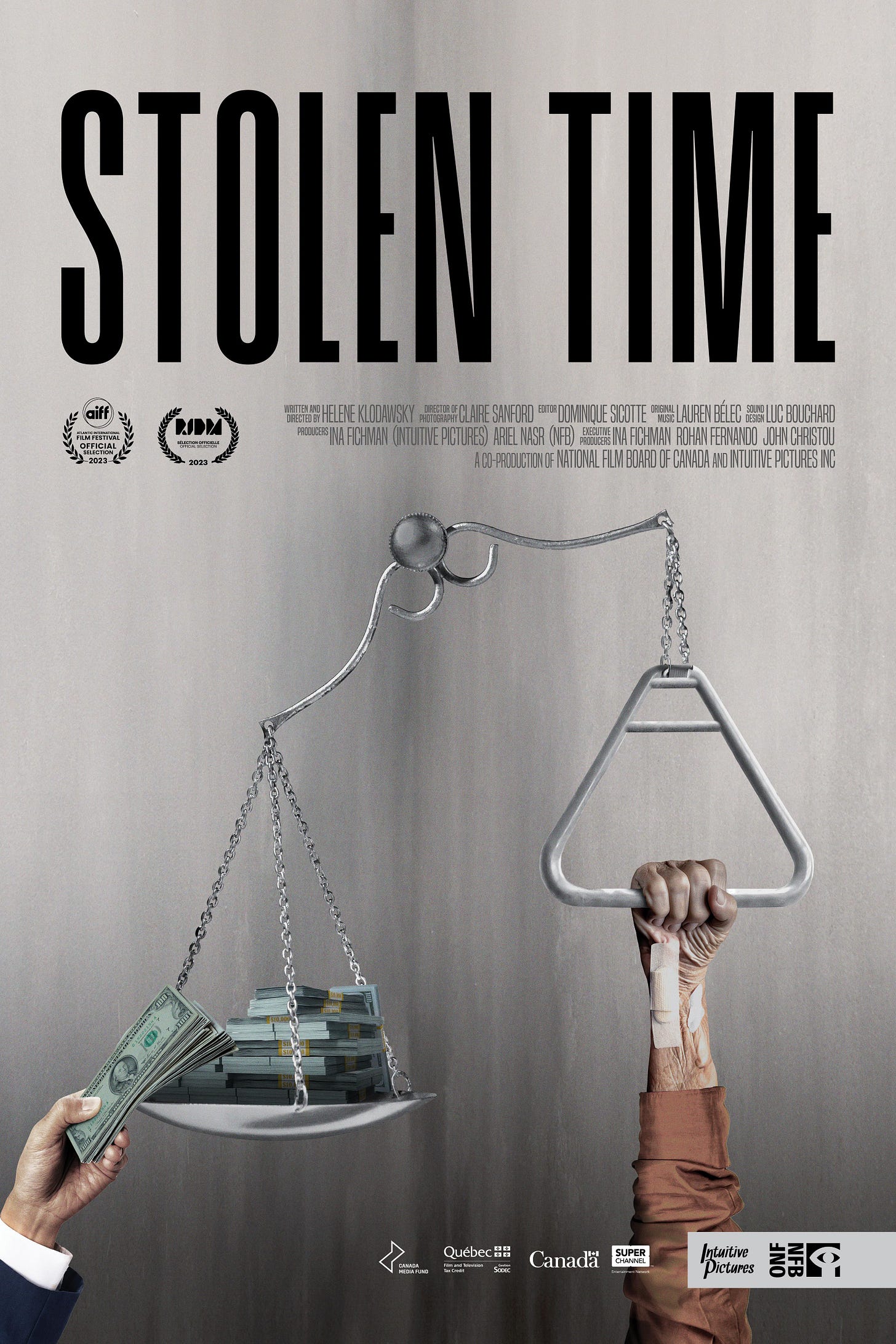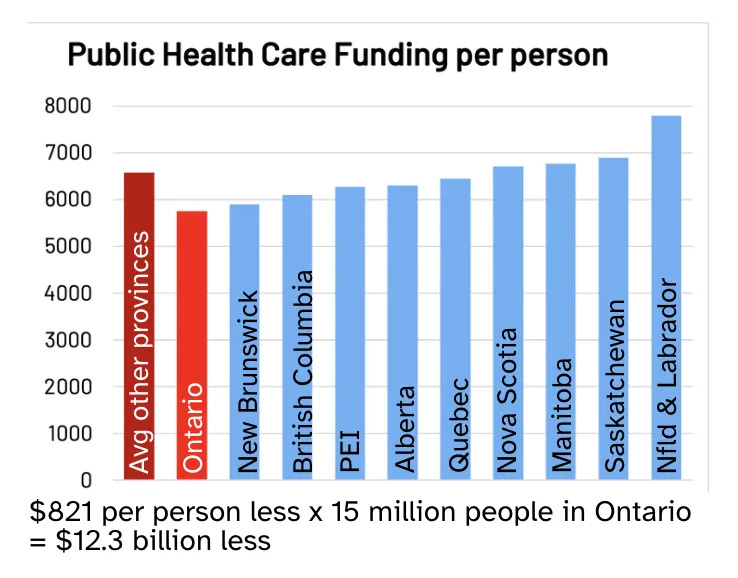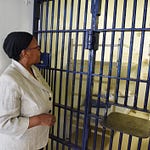Ontario Health Coalition Trojan Horse campaign outside Queen’s Park Credit: Canadian Union of Public Employees (CUPE) website
Seven years under the stewardship of Doug Ford has brought Ontario’s healthcare system to the brink of collapse. Another four years under Ford’s care could prove to be terminal for affordable public healthcare in this province.
According to Natalie Mehra, Executive Director of Ontario Health Coalition (OHC), this election is a pivotal moment in the history of universal healthcare. If Ontarians don’t vote to protect and improve public healthcare, it will be privatized.
Statistics Canada found that in 2016 over 1.3 million Ontarians had no family doctor. That was two years before Ford became premier. By July 2024, the Ontario College of Family Physicians declared that number had increased under Ford’s reign to 2.5 million Ontarians and projected that number would reach over four million by 2026.
That means, no matter how the Conservatives spin the numbers, impartial data confirms over one million Ontarians lost their family doctor while the Ford government held office and that this crisis is only going to get worse under Ford's expanding privatization.
“In our 40-years of advocacy for public health care we have seen the bad and the good. Objectively, our health care has never been in such crisis and disarray as it is now,” warned Mehra.
“While driving our public system into crisis, the Ford government has shifted billions of dollars in public funding to for-profit privatization. It did this without any mandate from the public. In fact, they lied outright leading into the last election categorically stating they would not privatize. Doing all that while waiting until the cusp of an election to announce funding and a vague promise to deal with primary care is reprehensible,” Mehra added.
While the Ford government claims it is pouring millions into healthcare, it failed to disclose that it has been using public money to facilitate the transition to for-profit corporate primary care. Since the last election, the Conservative government gave public funding to Shoppers Drug Mart, owned by Loblaw corporation, to create for-profit primary care clinics. This is a clear conflict of interest since Shoppers Drug Mart has the power to both diagnose and prescribe potentially sending patients to its own pharmacies.
The conflict of interest was further compounded when Shoppers Drug Mart began billing the Ford government for unnecessary MedsChecks. This is generally a free consultation with a pharmacist to review a patient's medications with the goal of helping patients take their medications as prescribed.
Shoppers Drug Mart took MedsChecks to an entirely new level by setting targets for pharmacists who were cold calling clients and netting Shoppers Drug Mart $75 per call. That $75 fee is a full $37 more than a doctor’s visit for a medication check would cost and $75 more than if the MedsCheck was done in-person when the customer picks up their prescription.
In 2023, the Ford government paid over $60 million for MedsChecks -- although at this time it’s impossible to distinguish doctor visits from Shoppers Drug Mart calls. Hear from former Shoppers Drug Mart pharmacists, pharmacy assistants and clients who say these calls were unnecessary and only meant to generate income for the corporation here.
Ford uses tax dollars for self-promotion
From April 1, 2023 to March 31, 2024, the Ford government spent at least $103.5 million on ads. According to the Auditor General of Ontario annual report (2024), this is the highest ever recorded spending on advertisements.
The trend in government advertising expenditures over the past 10 fiscal years actually follows a pattern that correlates with Ontario’s provincial elections. “Spending climbed to peak in 2017/18 and again in 2021/22, the years immediately preceding provincial elections (held in June 2018 and June 2022). Spending dipped significantly in 2018/19 and 2022/23, the years immediately following those elections,” the report states.
It goes without saying, those taxpayer dollars spent on advertising could have been used to end hallway medicine, keep operating and emergency rooms open, pay nurses a living wage and been invested in strategies to help attract residents into family medicine.
Emergency department closures become common place
Before Ford took office in 2018, emergency department closures were virtually unheard of. Under Ford’s watch a record number of local emergency departments closed. In 2023, there were 1,199 closures of local hospitals’ emergency departments, birthing units, intensive care units (ICUs) and urgent care centres. By December 2024, the number of emergency department closures had broken all records.
The Auditor General of Ontario’s Value-for-Money Audit: Emergency Departments (2023) report stated, “Unplanned closures of emergency departments were very rare before 2019/20. However, between July 2022 and June 2023 there were 203 temporary emergency department closures in Ontario, involving 23 hospitals primarily located in rural or remote areas, largely related to a nursing shortage and other staffing challenges.”
The report found: “There was no comprehensive province-wide and centralized strategy to help hospitals maintain nurse staffing levels to avoid closures or to reduce the duration of the closure. Instead, the Ministry and Ontario Health generally relied on hospitals to manage these situations independently, typically by closing their emergency department or using more-expensive agency staff where possible.”
Despite campaigning on a promise to end hallway medicine, Ford set a new record. By September 2024, on any given day an average of 2,000 patients waited on stretchers for a room. That is more than double the number in 2018 when Ford was first elected.
Under the Canada Health Act, it is illegal to charge patients user fees or to sell queue jumping — fast tracking — for the wealthy. Ontario Health Insurance Plan (OHIP) covers all medically necessary surgeries and diagnostic tests however, patients are being charged record-breaking illegal fees by private surgical clinics. Instead of stopping them, the Ford government is expanding them.
When Ford redirects billions of public dollars from public healthcare to for-profit corporations it leaves very little to invest in public healthcare. Ontario is quickly moving towards an American healthcare system that was epitomized by the 1980s show “St. Elsewhere.” But, hey, Ontario already has many of its own St. Elsewheres, like St. Michael’s Hospital in Toronto where doctors, nurses and staff do amazing work with virtually no provincial support.
Surgery cost comparison Credit: Ontario Health Coalition
While the Ford government increased funding to private clinics by more than 200 per cent, many public hospital operating rooms remain closed evenings and weekends because there are no funds to hire staff to run and clean them. When closed to the public, these operating rooms are actually rented out to private surgeons – many of whom also work in the public sector – to perform for-profit surgeries. Not a bad moonlighting gig.
As always, all you have to do is follow the money. Once she left office, former Ontario Health Minister Christine Elliott became a lobbyist for a corporation that owns a for-profit hospital. Don Mills Surgical Unit, now owned by Clearpoint Health Network, saw the Ford government increase its funding by 278 per cent. Ford is willingly paying them double the cost per surgery that local public hospitals received and all of that is taxpayer money diverted out of the public system.
For-profit nursing
Under Ford, hospitals are experiencing a nursing crisis of epic proportions. However, instead of receiving adequate government funding to allow them to hire more permanent local nursing staff, hospitals have been forced to use for-profit nursing agencies that charge more than double the per hour rate a public nurse earns plus the agency's fee which can bring the total to over $200 per hour.
Stolen Time NFB documentary about the privatization of long-term care in Ontario Credit: National Film Board of Ontario (NFB)
Ford has expanded PC Premier Mike Harris’ privatization of long-term care which is also experiencing a nursing shortage. That benefits Harris greatly because not only is he Chair of the Board for Chartwell Retirement Residences, but he and his third wife also started and own the private nursing agency, Nurse-Next-Door.
Not content with these achievements, the Ford government is set on privatizing public health services, mental health and addictions, as well as home care – virtually every aspect of the public healthcare system.
For over a hundred years, Ontarians have paid their taxes, donated, fund-raised and volunteered to build a world class public health care system. Yet, under Ford, Ontario not only pays the lowest public healthcare rate per person, but it even pays less than the national average.
Ford made sure Ontario invests less than the provincial average for public healthcare Credit: Ontario Health Coalition
Evaluate voting record of MPPs
OHC wants voters to carefully consider the facts before casting their ballot on February 27th. Evaluate the Ford government’s record critically and honestly. Ask yourself, what have Conservatives done to improve public healthcare? How have Conservatives voted on privatizing healthcare? What contracts did Conservatives award to private clinics and corporations? And, who is really paying the price for the Ford government's funding cuts and privatization of the public healthcare system?
Look at the actual voting record of individual MPPs like Health Minister Sylvia Jones; former Health Minister Christine Elliott; former Ministers of Long-term Care, Paul Calandra and Stan Cho as well as the current Minister, Natalia Kusendova-Bashta. Their voting records speak volumes and tend to contradict the soundbites and word salad they feed the press and constituents.
Hear first hand accounts from cataract patients
Make the time to listen to this immensely important encore podcast featuring OHC members Peter Bergmanis, Mike Suta and Maureen Munro discussing their cataract surgery experiences.
Munro paid a total of $7,000 for cataract surgery performed on both eyes by Dr. Bruce Nichols at his private, for-profit clinic Laser Vision London. Munro took out a loan to pay for the surgery and now finds it extremely difficult to make ends meet on a fixed income.
Mike’s partner, Debbie, had cataract surgery on her left eye in 2018. All costs were covered by OHIP. That surgery was performed by Dr. Bruce Nichols at the Ivey Eye Institute which is part of St. Joseph’s Health Care in London, Ontario.
Then in 2021, Debbie’s optometrist said the cataract in her right eye needed to be removed and told her there was a two-year wait for this surgery. The optometrist then suggested Debbie she see Dr. Bruce Nichols at his private, for-profit clinic Laser Vision London where she could get the surgery right away at a cost of $3,000. Debbie used her savings to pay for the surgery.
Nichol’s exemplifies surgeons working both sides of the healthcare system — a practice that jeopardizes the entire public healthcare system.
Peter decided to use the public system and had little difficulty getting cataract surgery that was completely covered by OHIP in a timely manner.
With 35 years experience working as an operating room attendant, Peter shares the changes he has observed within the publicly funded healthcare system in general and surgeries in particular.
Use your vote on February 27 wisely. If not for yourself, then for your children and grandchildren who don’t have — and never will have — the excellent private health insurance that many Baby Boomers rely on. Free universal healthcare is a human right that should never be commodified or exploited for personal gain — particularly by those elected to power.
Remember #FordIsKillingUs through common sense policies that promote #SocialMurder and we need to vote in a government that will #StopPrivatizingHealthcare and protect the #PublicCommons and #PublicGood.
*A version of this article first appeared on rabble.ca.
Ontario Health Coalition (OHC) is a non-partisan, non-profit organization made up of a network of community organizations that advocate for public health care in Ontario
OHC represents over 750,000 Ontarians, more than 500 member organizations and more than 40 local chapters across the province. OHC does not endorse any political party. They work to advocate with all political parties to improve public health care for all and speak out against any political party that dismantles and privatizes public health care.
The Coalition was founded to advocate for public health care before the Canada Health Act was brought in and has acted as a public interest group to protect it ever since.
Thanks to everyone who read today’s article and listened to my podcast. With your continued support, a little Nicoll can make a lot of change.
Music: Real Estate by UNIVERSFIELD is licensed under a Attribution 4.0 International License. freemusicarchive.org.
*Be sure to download the Substack app to get the most from your podcast experience.
















Share this post